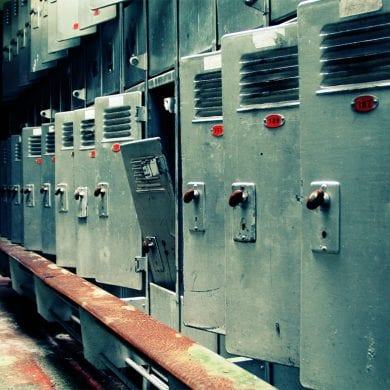Call and put options are contracts. They aren’t an actual asset. You buy the ‘right’ to trade an asset, but you aren’t under any obligation to follow through. The contract gives you the ‘option’ to buy or sell at the specified price. Buying the option to do so is like gambling – you are ‘betting’ that a stock’s price is going to go one way or another.
- You buy a call option if you think the price of the stock will increase within the option’s timeframe
- You buy a put option if you think the price of the stock will drop within the option’s timeframe
Understanding the call option
A call option is a contract that gives the right to buy the stock at a specific price between the time you buy the contract and its expiration date.
- If you buy a call option, you buy the right to buy the stock at the strike price (specified price) by the expiration date of the contract. You’d exercise the right if the stock’s price increased higher than the strike price. For example, if you buy a call with a strike price of $15 and an expiration of 5/31 and the stock price increases to $20 on 5/20, you could exercise your call option and buy it for $15.
- If you sell a call option, you collect the contract’s premium (cost). As the seller, you think the price isn’t going to go above the strike price. If it does, you’re obligated to sell the stock at the agreed-upon price. If it doesn’t, you collect the premium and make a small profit.
Understanding the put option
A put option is a contract that gives the right to sell the stock at a specific price between the time you buy the contract and its expiration date.
- If you buy a put option, you buy the right to sell the stock at the strike price (specified price) by the expiration date of the contract. You pay a premium for the contract. You’d exercise the right to sell the stock if the stock’s price fell below the strike price. For example, if you buy a put with a strike price of $15 and an expiration of 5/31 and the stock price falls to $10 on 5/21, you can exercise your option and sell the stock for $15.
- If you sell a put option, you collect the contract’s premium (cost). As a seller, you think the stock’s price won’t fall and the buyer won’t exercise the option. If that happens, you keep the premium and make a small profit. If the stock price does fall, though, you are obligated to sell the stock at the strike price.
Understanding the terms
You’ll hear a variety of terms when buying and selling options. Knowing what they mean helps you make the right choices.
Call Terms:
- In the money – The stock’s price is above the call strike price. This option is the most expensive because it already has value. When you buy it, you could execute the right to buy the stock at the lower price.
- Out of the money – The stock’s price is below the strike price. This option has no intrinsic value because you aren’t going to exercise the right to buy a stock if it’s already below the strike price.
- At the money – The stock’s price and the strike price are identical. This option also has no intrinsic value since there’s no benefit when the stock price and strike price are the same.
Overall, a call is a gamble or bet that the stock will increase in price. If it does, you can exercise your call option and buy it at the lower price.
Put Terms:
- In the money – The stock’s price is below the put strike price. It’s in the money because you could sell the stock for the higher strike price.
- Out of the money – The stock’s price is above the put strike price. You wouldn’t exercise the put because the stock price is higher than the strike price or the contracted price to sell the stock. You’d let the put expire instead.
- At the money – The stock’s price and the strike price are identical. You wouldn’t exercise the put because the stock price and strike price are the same.
Overall, a put is a gamble or bet that the stock will decrease. If it does, you can exercise your put option and sell it at the higher price.
It’s important to realize that options are just contracts. You aren’t trading any assets. Cash exchanges hands for the contract itself. Unless you execute the option because the stock’s price increased or decreased enough to make the option worth it, the option expires. The option’s seller walks away with a small profit from the premium and the buyer has a useless contract.
If you do execute the contract, though, you gain the difference between the market price and the strike price that worked to your advantage, whether buying or selling stocks.
TIP! M1 Finance is an excellent robo-advising service, a great way to start investing. They offer commission-free trades on 6,000 stocks & funds, free checking accounts and charge no investment management fees. You can invest, borrow and spend your money in one account. For UK readers, we recommend Wealthsimple as the leading robo advisor.
Why trade options?
Trading options may seem useless or like a lot of work, but it does have its benefits and uses:
- Depending on the options contract and how you use them, you can benefit in any type of market whether bear or bull
- Options are like an insurance policy against the market going opposite the direction you hoped
- You can make a profit on selling options by collecting the premiums
- They can help you make a significant profit in the right market
Options trading is best for the advanced trader or at least one with the right tools and experience in standard stock trading. If you understand the basic stock transactions along with how puts and calls can help leverage your position, it can help you increase your profits in any market.
TIP! Use the free, powerful financial planning tools from Personal Capital to take control of your financial life and get objective advice from their fiduciary financial advisors.




